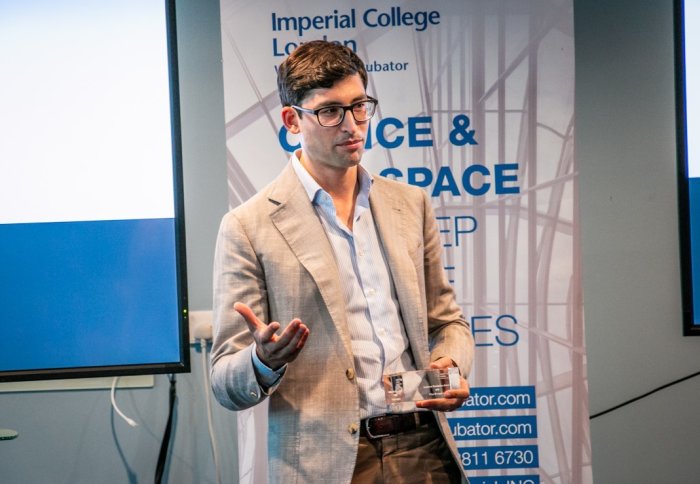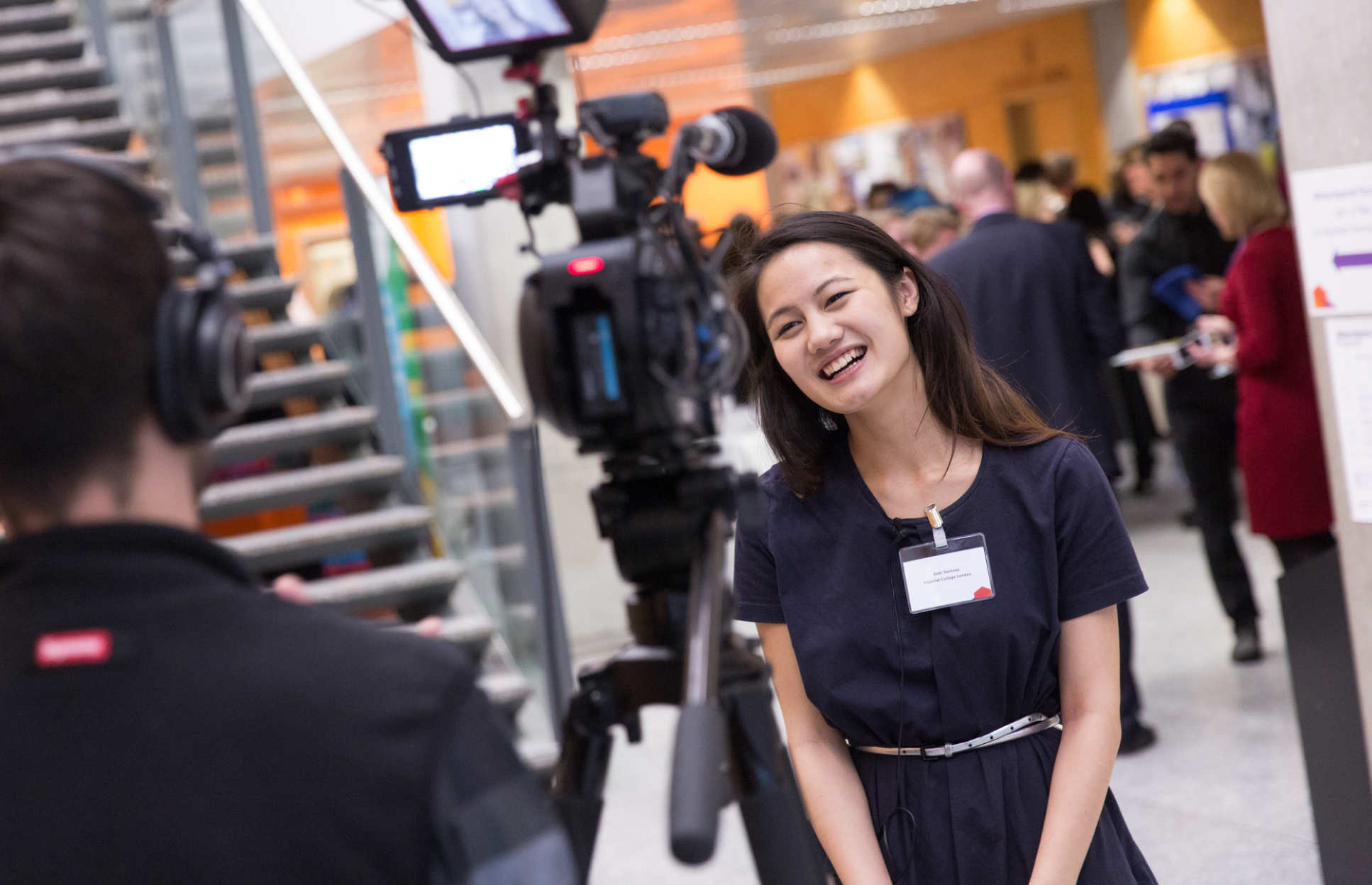White City Incubator celebrates business success in its first 18 months

Robert Habib, CEO of MiNA Therapeutics
Companies based in the Imperial White City Incubator have created more than 100 jobs and attracted £85m of investment, according to a new report.
The White City Incubator, which helps startup companies grow and develop, - has quickly reached 94% occupancy and helped over 20 early-stage science and technology companies in the past year and a half.

The 18,000 sq ft incubator, based at the College’s White City Campus, opened in October 2016. It provides state-of-the-art laboratories, office spaces and conferencing facilities, as well as an incubation programme comprising community events and entrepreneurial training, to help startup companies.
Graham Hewson, Head of Incubation, said: “I’m delighted with the first 18 months of operation. We’ve established the Incubator as an integral part of the entrepreneurial ecosystem at Imperial and I’m excited to see what the future holds.”
Companies in the Incubator include Polymateria, which is developing additives for plastic products and packaging that cause them to biodegrade over time, and ThinAir, which is producing innovative bio-membranes that can collect water from the air.
Celebrating success

The news comes as the Incubator celebrates its first “graduating” company, MiNA Therapeutics. The company, which saw rapid growth in the Incubator, will shortly be expanding to new and bigger facilities at the White City campus.
MiNA Therapeutics, which was co-founded by Professor Nagy Habib, Professor of Hepatobiliary Surgery at Imperial, is pioneering a new class of medicines called ‘small activating RNA’. These restore normal function to cells of patients with diseases including cancer and ischaemia, and have the potential to transform treatment.
One of its drug candidates is currently in clinical trials for the treatment of advanced liver cancer, and last year the company received £35m investment from Sosei Group Corporation.
Supporting fledgling startups
Over the past year, the Incubator also launched shared lab spaces to support smaller up-and-coming startups from Imperial and other London universities. Two of these have now grown sufficiently to move into their own Incubator labs.

One of these companies is CustoMem, which was founded by Henrik Hagemann and Gabi Santosa while they were students at Imperial. They are developing a new biomaterial which can capture and recycle hazardous micro pollutants found in industrial wastewater.
Henrik Hagemann, CEO & Co-founder of CustoMem, said: “Building a deep tech startup requires tremendous effort and more than a shed. The Incubator's shared labs provided essential access to high grade, excellently located labs at a crucial time in our development. We’re proud to be part of the community here, and have deep gratitude for the time we’ve spent in the shared lab.”

The White City Incubator runs several entrepreneurial programmes to support startups from their very earliest stages. The Innovation Academy offers a series of business and entrepreneurial skills courses made available free to Imperial staff, students and alumni. The White City Innovators Programme is a mini-accelerator which urges participants – drawn from Imperial alumni and local entrepreneurs – to crystallise their business plan and begin building their startup.

The most recent White City Innovators Programme was won by Spyras, a company developing a paper-based breathing monitor for the early detection of sepsis.
George Winfield, founder of Spyras, said: “The White City Innovators programme hosted by the incubator and its team provided us with the opportunity to build the foundations of Spyras. We have maintained contact with the incubator team and are still being provided with their continued support as we venture forward. Being able to utilise the contacts that exist within the incubator’s vast network has connected us with not just potential investors but also experienced mentors that continue to provide invaluable advice daily.”
New support
The Annual Report for the White City Incubator also looks ahead to new initiatives that will boost the support it offers to fledgling companies, as part of the College’s broader provision to encourage enterprising staff and students.
The Incubator has just launched a new Experts in Residence Programme, which harnesses the knowledge and expertise of its alumni to help younger companies with support, advice, introductions and mentoring.
Robert Habib, CEO of MiNA Therapeutics and Omer Casher, COO of SimeDX, will join the Experts in Residence Programme.
Article text (excluding photos or graphics) © Imperial College London.
Photos and graphics subject to third party copyright used with permission or © Imperial College London.
Reporter
Deborah Evanson
Communications Division